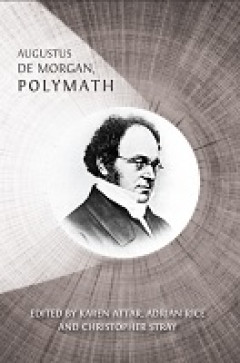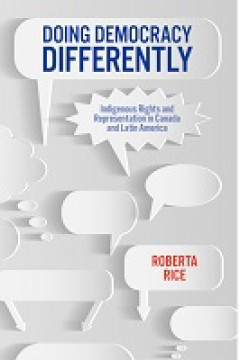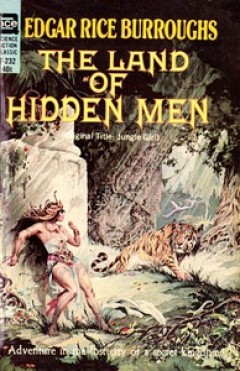Ditapis dengan
E-book Grassroots Innovation Movements
In August 2015, while we were writing this book, a group of sustainability activists were gathering in the grounds of a borrowed château on the outskirts of Paris. They were intent upon ‘eco-hacking’ the future. What this meant was turning the château into a temporary innovation camp, equipped with the tools for develop-ing a variety of technologies of practical and symbolic…
- Edisi
- -
- ISBN/ISSN
- 9781315697888
- Deskripsi Fisik
- 241 hlm
- Judul Seri
- -
- No. Panggil
- 338.9 SMI g
E-book Reign of the Beast : The Atheist World of W. D. Saull and his Museum o…
So warned the appalled editor of theChurch of England Magazine in 1840, after leaving a talk in a socialist hall by the London wine merchant and museum owner William Devonshire Saull (1783–1855). It was a reminder that the new science of the earth was not only startling and fashionable, but dangerous in dirty hands. Dissidents were harnessing geological armaments for use against t…
- Edisi
- -
- ISBN/ISSN
- 9781805112419
- Deskripsi Fisik
- 678 hlm
- Judul Seri
- -
- No. Panggil
- 576.8 DES r

E-book Augustus De Morgan, Polymath: New Perspectives on his Life and Legacy
When Augustus De Morgan died in 1871, he was described as ‘one of the profoundest mathematicians in the United Kingdom’ and even as ‘the greatest of our mathematicians’. But he was far more than just a mathematician. Because much of his voluminous written output on various subjects was scattered throughout journals and encyclopaedias, the breadth of his interests and contributions has b…
- Edisi
- -
- ISBN/ISSN
- 9781805113263
- Deskripsi Fisik
- 388 halaman, ilus.
- Judul Seri
- -
- No. Panggil
- 925 ATT a

E-book Rethinking the Andes–Amazonia Divide : A cross-disciplinary exploration
Maps in this book were reproduced by Paul Heggarty from maps provided by chapter authors, by converting them into a GIS (Geographic Information System) database, collated and enriched for South America for the purposes of this book. All data used on the maps are thus geo- referenced – set to actual latitude and longitude coordi-nates – as precisely as possible. Individual p…
- Edisi
- -
- ISBN/ISSN
- 9781787357358
- Deskripsi Fisik
- 421 hlm
- Judul Seri
- -
- No. Panggil
- 980 PEA r

E-book Doing Democracy Differently: Indigenous Rights and Representation in C…
Across North and South America, Indigenous people play a dual political role, building self-governing structures in their own nations and participating in the elections of settler states. Doing Democracy Differently asks how states are responding to demands for Indigenous representation and autonomy and in what ways the ongoing project of decolonization may unsettle the practice of democracy. B…
- Edisi
- -
- ISBN/ISSN
- 9781773855646
- Deskripsi Fisik
- 163 halaman
- Judul Seri
- -
- No. Panggil
- 321.8 RIC d
E-book Animals and Medicine : The Contribution of Animal Experiments to the C…
The Research Defence Society (RDS) was founded in 1908 by Dr Stephen Paget, son of the eminent Victorian surgeon, Sir James Paget. Its role was to defend scientists conducting medical research using animals and to inform the public about the importance of animal experimentation. In its first year it attracted a membership of 2000 which included scientists in th…
- Edisi
- -
- ISBN/ISSN
- 9781783741199
- Deskripsi Fisik
- 246 hlm
- Judul Seri
- -
- No. Panggil
- 590.7 BOT a
E-book A Matter of Trust : Building Integrity into Data, Statistics and Recor…
The Sustainable Development Goals (SDGs) initiative has the potential to set the direction for a future world that works for everyone. The SDGs were approved by 193 United Nations member countries in September 2016 to help guide global and national development policies in the period to 2030. The 17 goals build on the successes of the Millennium Development Goals, while also includin…
- Edisi
- -
- ISBN/ISSN
- 9781912250356
- Deskripsi Fisik
- 269 hlm
- Judul Seri
- -
- No. Panggil
- 300.285 AMB a
E-book The Grid and the Park : Public Space and Urban Culture in Buenos Aires…
In 1887, as a result of the federalization of Buenos Aires carried out at the begin-ning of the decade, the government of the Province of Buenos Aires transferred to the national government additional land to enlarge the capital, from which, a year later, its definitive limits were to be drawn (the current General Paz Avenue).1The municipality had until then a little over 4,000 he…
- Edisi
- -
- ISBN/ISSN
- 9781951634216
- Deskripsi Fisik
- 479 hlm
- Judul Seri
- -
- No. Panggil
- 902 GOR t
E-book Just Faith : Glocal Responses to Planetary Urbanisation
rantor, on the one hand, can be understood as the Empire in its most unbridled form, colonising and governing all surrounding worlds and extracting from them what the Empire required for its own inhabitants. This intensity was matched only by the sheer precarity it dealt, leading to a coup staged by rebel leader Gilmer, displacing Trantor and the imperial family. Over time it was the farmers, …
- Edisi
- -
- ISBN/ISSN
- 9781928396666
- Deskripsi Fisik
- 398 hlm
- Judul Seri
- -
- No. Panggil
- 200.1 AGU j
E-book Rice Ratooning
Rice is cultivated in tropical Asia (South and Southeast Asia) over an area of about 88.7 million ha, with an annual total production of nearly 183.8 million tons of rough rice, an average productivity of 2.7 t/ha (Table 1). Only 14% of the rice area in tropical Asia supports 2 crops of rice per year under irrigation. The remaining riceland is entirely rainfed, with varying water regimes. In ar…
- Edisi
- -
- ISBN/ISSN
- 9711041901
- Deskripsi Fisik
- 288 hlm
- Judul Seri
- -
- No. Panggil
- 664.7 IRR r

EXO K-Pop Superstars
Meet EXO, a K-Pop sensation like no other, in the first unofficial biography of the band who have been topping charts and stealing hearts since 2012. Nine boys, from South Korea and China, are taking the world by storm. Their catchy songs, beautiful music videos and incredible live performances have won them millions of passionate fans who have stuck with them through the bad times and watched…
- Edisi
- Cet. 1
- ISBN/ISSN
- 9781789291148
- Deskripsi Fisik
- 224 hlm; 15 x 23,5 cm
- Judul Seri
- -
- No. Panggil
- 780.92 BES e
E-book Transformative pathways to sustainability : Learning across discipline…
This book tries to address these questions. The research detailed in this volume (which took place pre-Covid-19) engages with the specificities of dif-ferent contexts around the world, while seeking general lessons that can be drawn about transformations to sustainability and the role of research within them. It thus documents a new approach (or approaches) that…
- Edisi
- -
- ISBN/ISSN
- 9780429331930
- Deskripsi Fisik
- 267 hlm
- Judul Seri
- -
- No. Panggil
- 338.9 ABR t
E-book Evolutionary Genomics : Statistical and Computational Methods
The typical definition of the genome is often dualistic, referen-cing both structural features and its function to store and transmitbiological information [4]. For example, the US National Institutesof Health (NIH) uses the following definition: “A genome is anorganism’s complete set of DNA, including all of its genes. Eachgenome contains all of the information needed to build and main-tai…
- Edisi
- -
- ISBN/ISSN
- 9781493990740
- Deskripsi Fisik
- 777 hlm
- Judul Seri
- -
- No. Panggil
- 572.8 ALT e

E-Book The Land of Hidden Men
"'There are other things deep in the jungle, my lord, that no man may look upon and live.' "'What, for example?' demanded King. "'The ghosts of my ancestors,' answered the Cambodian, 'the Khmers who dwelt here in great cities ages ago. Within the dark shadows of the jungle the ruins of their cities still stand, and down the dark aisles of the forest pass the ancient kings and warriors and lit…
- Edisi
- -
- ISBN/ISSN
- 70536
- Deskripsi Fisik
- -
- Judul Seri
- -
- No. Panggil
- 823 BUR t
E-book The Florida-Friendly Landscaping Guide to Plant Selection and Landscap…
A Florida-Friendly Landscape is a quality landscape that is designed, installed, and maintained according to the nine Florida-Friendly Landscaping™ principles. The nine principles seek to reduce environmental impact from landscaping by properly applying water, fertilizer, and pesticides, creating wildlife habitat, preventing erosion, recycling yard waste, and employing other practices based o…
- Edisi
- -
- ISBN/ISSN
- -
- Deskripsi Fisik
- 114 hlm
- Judul Seri
- -
- No. Panggil
- 719 HUN t
E-book The outlaw of torn
Here is a story that has lain dormant for seven hundred years. At first it was suppressed by one of the Plantagenet kings of England. Later it was forgotten. I happened to dig it up by accident. The accident being the relationship of my wife's cousin to a certain Father Superior in a very ancient monastery in Europe. He let me pry about among a quantity of mildewed and musty manuscripts an…
- Edisi
- -
- ISBN/ISSN
- -
- Deskripsi Fisik
- 284 hlm; 0.4 mb
- Judul Seri
- -
- No. Panggil
- 823 BUR t
E-book The beasts of tarzan
"The entire affair is shrouded in mystery," said D'Arnot. "I have it on the best of authority that neither the police nor the special agents of the general staff have the faintest conception of how it was accomplished. All they know, all that anyone knows, is that Nikolas Rokoff has escaped." John Clayton, Lord Greystoke--he who had been "Tarzan of the Apes"--sat in silence in the apartm…
- Edisi
- -
- ISBN/ISSN
- -
- Deskripsi Fisik
- 299 hlm; 0.4 mb
- Judul Seri
- -
- No. Panggil
- 823 BUR t
E-book The chessmen of mars
Shea had just beaten me at chess, as usual, and, also as usual, I had gleaned what questionable satisfaction I might by twitting him with this indication of failing mentality by calling his attention to the nth time to that theory, propounded by certain scientists, which is based upon the assertion that phenomenal chess players are always found to be from the ranks of children under twelve…
- Edisi
- -
- ISBN/ISSN
- -
- Deskripsi Fisik
- 382 hlm; 0.6 mb
- Judul Seri
- -
- No. Panggil
- 823 BUR t
E-book Tarzan and the jewels of opar
Lieutenant Albert Werper had only the prestige of the name he had dishonored to thank for his narrow escape from being cashiered. At first he had been humbly thankful, too, that they had sent him to this Godforsaken Congo post instead of court-martialing him, as he had so justly deserved; but now six months of the monotony, the frightful isolation and the loneliness had wrought a change. T…
- Edisi
- -
- ISBN/ISSN
- -
- Deskripsi Fisik
- 288 hlm, 0.4 mb
- Judul Seri
- -
- No. Panggil
- 823 BUR t
E-book A princess of mars
He seemed always to be laughing; and he entered into the sports of the children with the same hearty good fellowship he displayed toward those pastimes in which the men and women of his own age indulged; or he would sit for an hour at a time entertaining my old grandmother with stories of his strange, wild life in all parts of the world. We all loved him, and our slaves fairly worshipped t…
- Edisi
- -
- ISBN/ISSN
- -
- Deskripsi Fisik
- 282 hlm, 0.4 mb
- Judul Seri
- -
- No. Panggil
- 823 BUR a
E-book Tarzan of the apes
I had this story from one who had no business to tell it to me, or to any other. I may credit the seductive influence of an old vintage upon the narrator for the beginning of it, and my own skeptical incredulity during the days that followed for the balance of the strange tale. When my convivial host discovered that he had told me so much, and that I was prone to doubtfulness, his foolish prid…
- Edisi
- -
- ISBN/ISSN
- -
- Deskripsi Fisik
- 342 hlm
- Judul Seri
- -
- No. Panggil
- 823 BUR t

Kristus Tuhan: Jalan menuju Kana.
- Edisi
- cet. 1
- ISBN/ISSN
- 978-979-22-4159
- Deskripsi Fisik
- 304 hlm;13,5 x 20 cm
- Judul Seri
- -
- No. Panggil
- 232.9 RIC k
- Edisi
- cet. 1
- ISBN/ISSN
- 978-979-22-4159
- Deskripsi Fisik
- 304 hlm;13,5 x 20 cm
- Judul Seri
- -
- No. Panggil
- 232.9 RIC k

The Book of art - Origins of westrn Art : A pictorial encyclopedia of paintin…
Quality set Printed in Italy, this set features gold leaf page edges, good paper, and lush illustrations. Front cover quote "The Book of Art Set is designed as an intro to the visual arts: painting, drawing, and sculpture. It provides a comprehensive survey, in 10 volumes of one of the most creative aspects of human effort, especially organized for the reader who does not have an extensive know…
- Edisi
- 4th edition
- ISBN/ISSN
- -
- Deskripsi Fisik
- 416 pg.; illus. 21 x 25 cm
- Judul Seri
- -
- No. Panggil
- 703 DON t

LOVE: Clasic Stories
- Edisi
- cet. 1
- ISBN/ISSN
- 0-582-46578-8
- Deskripsi Fisik
- 85 page;13 x 20 cm
- Judul Seri
- -
- No. Panggil
- 823 RIC l
- Edisi
- cet. 1
- ISBN/ISSN
- 0-582-46578-8
- Deskripsi Fisik
- 85 page;13 x 20 cm
- Judul Seri
- -
- No. Panggil
- 823 RIC l
 Karya Umum
Karya Umum  Filsafat
Filsafat  Agama
Agama  Ilmu-ilmu Sosial
Ilmu-ilmu Sosial  Bahasa
Bahasa  Ilmu-ilmu Murni
Ilmu-ilmu Murni  Ilmu-ilmu Terapan
Ilmu-ilmu Terapan  Kesenian, Hiburan, dan Olahraga
Kesenian, Hiburan, dan Olahraga  Kesusastraan
Kesusastraan  Geografi dan Sejarah
Geografi dan Sejarah